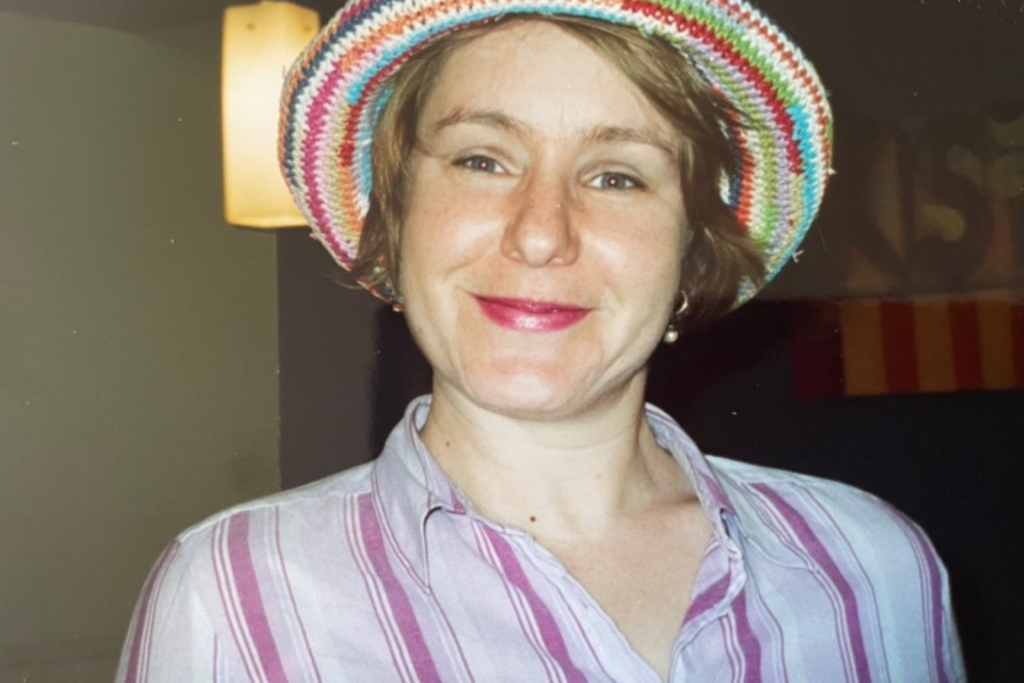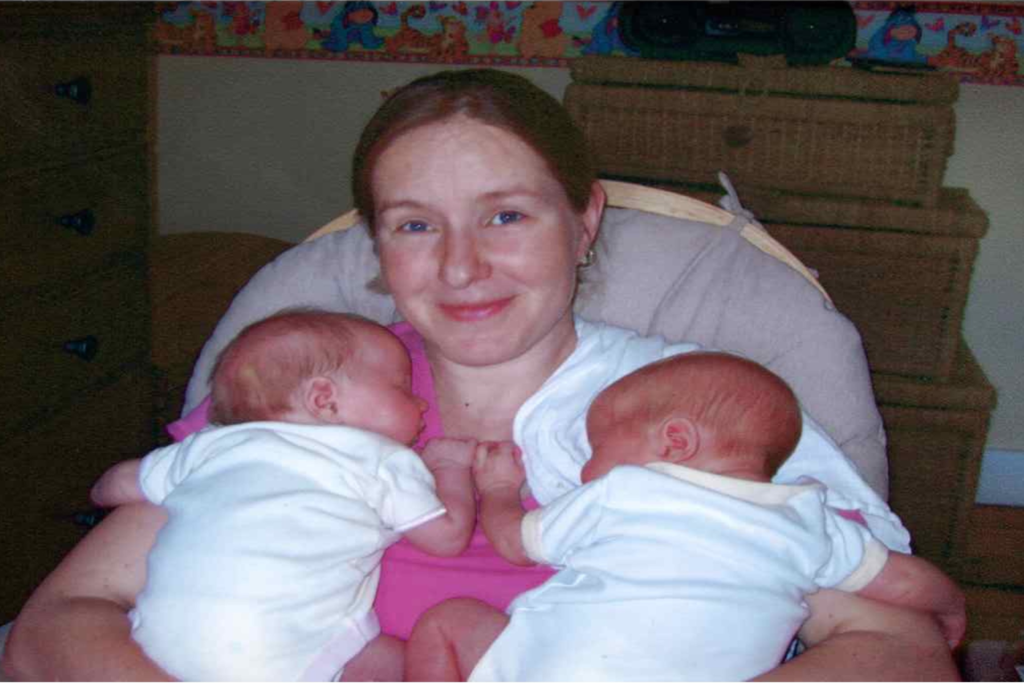Alison Whybrow was laid to rest in the quiet of a forest in the English countryside, in the midst of the nature she spent her whole life preserving. Philanthropist, climate and social justice activist, psychologist, author, coach, wife, mother, and friend, Alison died of cancer on February 27, 2022, at the age of 53. She continues to be a loyal supporter of Karuna-Shechen, along with her husband and their two 18-year-old daughters, through the payment of her royalties.
Alison Whybrow was one of those people whose encounter changed a life. To those of us who did not have the chance to meet her, Gordon, Millie and Georgie agreed to talk about their wife and mother, her beliefs and the life lessons she passed on to them.
Teaching #1 : The love you give is the love you receive

While in the process of writing her first book, The 31 Practices, Alison and co-author, Alan Williams discovered Matthieu Ricard’s photographs. They were able to use them to illustrate their work in exchange for a donation to Karuna-Shechen. One year after its publication, an earthquake hit Nepal and the co-authors both decided to support Karuna further. Since then Alison offered all of her royalties from the book to Karuna-Shechen. Her last book, Ecological and Climate-conscious coaching, was published posthumously in November 2022.
According to Georgie, her mother embodied the idea that “the love you give is the love you receive”. The outpouring of generosity and support that followed Alison’s death is a testament to that. Millie has found great comfort in the yoga community of which she is a member. The community, which holds monthly fundraisers for various charities, raised nearly $2,500, which Millie donated to Karuna.
Even in this difficult time, Gordon and his daughters thought of others, holding a fundraiser for various organizations such as the Soil Association, Gingerbread, and Karuna-Shechen at Alison’s funeral.
Giving to Karuna is a way to keep her spirit, values, and love alive.
Gordon Barker
Teaching #2: Be kind to yourself, be kind to others, and be kind to the planet
Since childhood, at every birthday and Christmas party, the twins have received a gift of money to be donated to charity. The idea came from Gordon, inspired by his grandparents, who had little money but gave a lot. “We are aware of our privilege. In reality, we use more than we give,” he says. “Giving is worth more than receiving. It’s a way for us to be part of the solution. Alison would say that we are a reflection of what we invest in,” Gordon remembers smiling.
This tradition has not only strengthened my gratitude for all that life has to offer, but it has also changed how I look at things and react. I feel genuine joy in just giving and sharing love.
Millie
Millie and Georgie choose the associations they want to support: environmental protection , the fight against social inequalities, women’s cause, and small movements in need of support. These choices reflect their mother’s struggles, but also those that are close to their hearts. “It is a way to use our privilege to support others and allow them to help them have the same opportunities we had,” Millie says. “It is also a bit selfish when it comes to ecology because I would like to still be able to wonder at the beauty of nature and not suffer when I see a tree being cut down, species disappearing, or our home being destroyed.” She shares this sensitivity for nature with her mother, with whom she continued to read their favorite book, Braiding the SweetGrass, on her hospital bed :
“The moral covenant of reciprocity calls us to honor our responsibilities for all we have been given, for all that we have taken. It’s our turn now, long overdue. Let us hold a giveaway, for Mother Earth, spread our blankets out for her and pile them high with gifts of our own making. Imagine the books, the paintings, the poems, the clever machines, the compassionate acts, the transcendent ideas, the perfect tools. The fierce defense of all that has been given, gifts of mind, hands, heart, voice, and vision all offered up on behalf of the earth. Whatever our gift, we are called to give it and to dance for the renewal of the world in return for the privilege of breathing.” Braiding Sweetgrass: Indigenous Wisdom, Scientific Knowledge, and the Teachings of Plants, “Epilogue : Returning the Gift”, Robin Wall Kimmerer, 2015
Lesson #3: Your voice is the most powerful weapon you have
Getting involved can take many forms: supporting financially, volunteering your time, or refusing to be silenced. Alison has made sure her children never forget this, that they are not afraid to fight for what they believe is right or to have their voices heard. Not only did Goergie remember this lesson, she also beautifully shared it with the people who attended her mother’s funeral, and later, to us :
« “I will never forget the most valuable lesson you taught me, and I want to share it with everyone. Your voice is the most powerful weapon you have. It may not be as loud, articulate or influential as another, but that doesn’t mean it’s not powerful. It’s the only thing you have, so never let it be silenced, not for one breath. Stand up for yourself, for others, with others. And mum did that, as she always lived her lessons. She fought for the planet so that me and my sister might have a better place to live in. She fought for the animals, trees, water and the people less privileged than us. In spite of the risk of being arrested, losing her freedom, losing her clients or her job, she persevered. Because our voices are the most powerful things we have, and we should never for a second let them be silenced. » Extract from Georgie’s speech, at her mother’s funeral ceremony.
Lesson #4: Love transcends the boundaries of life

This last lesson was learned in the pain and sadness of Alison’s departure, but it is the one that shines through the most, with every word from her husband and daughters. And if death does not stop love, it would seem that it does not stop life either. As Gordon, Millie, and Georgie have repeatedly said, Alison lives on in their memories, their words, their hearts, their commitments, and in every person who crossed her path.
« Alison considered herself a Buddhist,” says Gordon. “That helped her in the last few days: she was calm and strong at the same time. I like to say that she was a Buddhist, a Taoist, and a Stoic all at once. She passed on her serenity and strength to us. We are very happy that Karuna was able to organize such a beautiful ceremony (puja) in Nepal. Even though it is hard to not have her physically by our side anymore, our bond goes far beyond that. We are still connected, she still lives with us in different ways. »
We just have to be a little kinder, more compassionate, more empathetic each day and she’ll be living through our actions
Georgie
Certainly, this article will not do justice to the humility, strength of heart, and love that unite and emanate from Gordon, Millie, Georgie, and Alison. However, we hope that it will convey Karuna-Shechen’s admiration and gratitude for their support and the time they gave us.